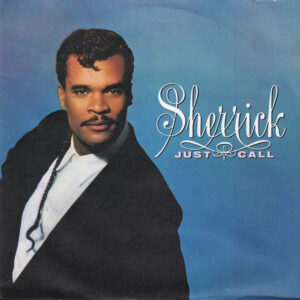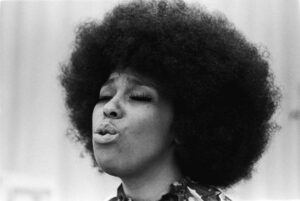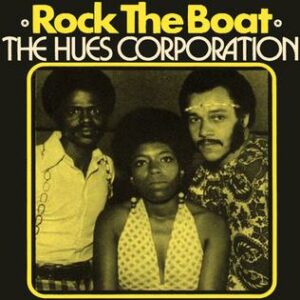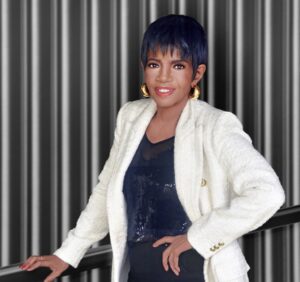It has been eight years since we’ve heard a new Maxwell album, and the anticipation is high…too high. Such heights invite disappointment; it’s almost built-in after a year of consistent PR buzz, but folks won’t know that until 7/7/09 when they bring eight years of hope as they press "play." The hype around the first of three annual disc releases has been deafening, with a sold-out national comeback tour and two spit-shined BET televised performances of the suited-up, sophisticated gent, all giving the forthcoming Maxwell project the inevitable aura of a comeback hit. The chart-climbing "Pretty Wings" and the sluggish, but clear radio play of the less engaging "Bad Habit" have already alluded to the project’s anticipated wall plaques. BLACK… may be a platinum smash, but it won’t be because the music here matches or exceeds the best of Maxwell.
At BLACKsummernight‘s best, the musicianship has dramatically improved, with extended, ingeniously produced jam sessions making Maxwell’s next tour a must-see event, if only to see how well his band translates the driving, intricate arrangements of the vivacious "Help Somebody." At the project’s worst, the deconstructed songs have a whiff of self-indulgence, with Maxwell’s song structures having deliberately grown looser and more eclectic since 2001’s Now, making it a better companion to 1997’s exquisitely forlorn Embrya. There is little akin to the awestruck enchantment of the hungry artist’s 1996 debut, Urban Hang Suite, that landed Maxwell a permanent place in soul history, but that’s to be expected, hype aside. Every "overnight sensation" knows it’s hard to beat or match your first, when your first is widely considered a masterpiece.
Not that Maxwell was trying. According to the New York Times, the partial goal of his absence following his impressive three-platinum album run was to avoid the endless cycle of chasing his last hit. Well, he may have accomplished that curious goal. With the exception of a few A-list cuts like "Help Somebody" or "Pretty Wings," the project is not very radio-friendly, which I don’t believe to be a bad thing given Auto-tunes dominance there. But, it’s also largely not even casual music listener friendly, which I think after an eight-year wait is a bit of a disservice to those loyalists seeking another "Whenever, Wherever, Whatever," "Til The Cops Come Knocking," or even the atmospheric Sweetback classic, "Softly, Softly."
Lyrically, BLACKsummers’night‘s high drama songs are confessional, emotional outbursts that dare to open the door to listeners in the middle of a discussion, trusting you to understand the story. These lyrical decisions sometimes make these songs feel unfinished, like spying journal entries opened at its center. In Maxwell’s forgoing of traditional pop song structures for an organic free flow of musical ideas, this album is closer to bebop jazz or the neo-retro Quantic Soul Orchestra’s brand of soul, when the fan expectation is for R.Kelly’s more straightforward "Fortunate," Maxwell’s highest charting single to date. Too often the most loosely structured tunes on BLACK…beg for a more definitive center of gravity to anchor its conceits and give listeners a point of entry to accompany these musicians’ wild ride.
Vocally, Maxwell is different here too. The fragility and vulnerability of his falsetto vocals is routinely replaced with a more testicular, sanded natural. Instead of breathtaking feathery notes to express his trademark sensitivity, testimonial verses and pained growls are offered as emotional substitutes. When Maxwell does sing in his acclaimed false as in the mournful "Stop The World," his highs are audibly heavier and more roughhewn with age. You know that it’s Maxwell, but not the Maxwell you remember.
Musicians’ change, voices change, approaches change; these are the facts of every true artist’s creative trajectory. To compare BLACKsummers’night to golden-era jazz or the Quantic Soul Orchestra is to confirm that BLACK…is not a bad album. In its musicianship, it has many exciting, if fleeting, moments to recommend it. This is especially true of "Help Somebody," the project’s most stimulating and cohesive chapter. "Help Somebody" is a driving rock and soul jamboree, the kind one expects to hear more from the fiery Anthony Hamilton than the mild-mannered Maxwell. The cut also represents one of Maxwell’s finest hours. "Help Somebody" offers an idea of what could have been if only Maxwell hadn’t gone so far out of his way to avoid the culturally familiar (sans a few sly musical references, like the "Papa Was A Rolling Stone" horns of "Cold" or the opening key chords of "Fistful of Tears" that drip with Prince’s "Beautiful Ones").
Some might call it admirable that on his comeback Maxwell is eschewing what’s popular for what he’s hearing in his head right now, even if those sounds aren’t what his public is accustomed to receiving from him. Others’ may call it arrogant or career suicide to be experimentally self-indulgent after an eight-year hiatus. I think long-time collaborator, producer Stuart Matthewman (Sade, Sweetback), is sorely missing and that the outcomes of Maxell’s production collaboration with Hod David (Eric Benet, Chris Stills), as with Now, are not as seamless. I also think Maxwell is an artist whose work can sneak up on you over time, making you respect it, even if you don’t always come to love it. I was initially underwhelmed by BLACK‘s lead single, "Pretty Wings," but time has been kind to it and my appreciation has grown with repeated listens and live performances. I can only hope for a reprisal of that experience with BLACKsummers’night, to at least accept it as a placeholder for what is optimistically better music to come. Apparently, the third release of this trilogy, blacksummers’NIGHT, is an intimacy album on par with Urban Hung Suite. I wish Sony/Columbia had chosen to release that last project first, given fan’s extended wait for Maxwell’s classic sound. One can only hope Maxwell’s less devoted can hang in there until then, ‘til the cops come knocking once more. Recommended.
By L. Michael Gipson










